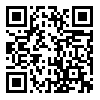Volume 5, Issue 1 (2019)
CJP 2019, 5(1): 0 |
Back to browse issues page
Download citation:
BibTeX | RIS | EndNote | Medlars | ProCite | Reference Manager | RefWorks
Send citation to:



BibTeX | RIS | EndNote | Medlars | ProCite | Reference Manager | RefWorks
Send citation to:
Shafizadeh F, Nasiri-Amiri F, Sayyari A, Imanzadeh F. Mothers’ knowledge and perception of childhood diarrhea and its management with diet in north and east of Tehran. CJP 2019; 5 (1) :342-349
URL: http://caspianjp.ir/article-1-114-en.html
URL: http://caspianjp.ir/article-1-114-en.html
Pediatric Gastroenterology, Hepatology and Nutrition Research Center, Research Institute for Children Health, Shahid Beheshti University of Medical Sciences, Tehran, Iran. , drimanzadeh@yahoo.com
Abstract: (6379 Views)
Background: Different dietary practices are applied worldwide to treat diarrheal diseases. The aim of this study was to assess the mothers’ knowledge and perception about childhood diarrhea and the way they manage it with diet.
Methods: This cross-sectional study was conducted on mothers who had at least one child (6 to 60 months) with diarrhea and needed home management. They were selected by multistage cluster sampling from health centers affiliated to Shahid Beheshti University of Medical Sciences. The data were collected using socio-demographic characteristics and the knowledge about the mothers’ behavior related to nutritional factors during diarrhea questionnaires. The total knowledge score was 39. The classification of low, medium, high and excellent the knowledge scores was less than 20, 20-25, 25-31 and above 31, respectively. The data analysis using SPSS-18. P-value <0.05 was considered as significant level.
Results: The mean age of the mothers was 29.1 ± 4.9% years. The highest incidence of diarrhea was seen in children aged 6-24 months (52.2%). Acute diarrhea (duration < 14 days) was predominant (n = 379, 94.75%), while only 21 (5.25%) of the children reported persistent diarrhea (duration ≥14 days). The mean score of the mothers’ knowledge was 23.75±4.41, ranging from 10 to 39. The mothers' knowledge score was significantly correlated with their education levels (p<0.001).
Conclusions: The mothers had little information on nutritional management of diarrhea. Therefore, the healthcare providers have a crucial role in increasing the mothers’ awareness of appropriate and optimal use of a specific diet to control diarrhea.
Methods: This cross-sectional study was conducted on mothers who had at least one child (6 to 60 months) with diarrhea and needed home management. They were selected by multistage cluster sampling from health centers affiliated to Shahid Beheshti University of Medical Sciences. The data were collected using socio-demographic characteristics and the knowledge about the mothers’ behavior related to nutritional factors during diarrhea questionnaires. The total knowledge score was 39. The classification of low, medium, high and excellent the knowledge scores was less than 20, 20-25, 25-31 and above 31, respectively. The data analysis using SPSS-18. P-value <0.05 was considered as significant level.
Results: The mean age of the mothers was 29.1 ± 4.9% years. The highest incidence of diarrhea was seen in children aged 6-24 months (52.2%). Acute diarrhea (duration < 14 days) was predominant (n = 379, 94.75%), while only 21 (5.25%) of the children reported persistent diarrhea (duration ≥14 days). The mean score of the mothers’ knowledge was 23.75±4.41, ranging from 10 to 39. The mothers' knowledge score was significantly correlated with their education levels (p<0.001).
Conclusions: The mothers had little information on nutritional management of diarrhea. Therefore, the healthcare providers have a crucial role in increasing the mothers’ awareness of appropriate and optimal use of a specific diet to control diarrhea.
Send email to the article author
| Rights and Permissions | |
 |
This work is licensed under a Creative Commons Attribution-NonCommercial 4.0 International License. |







